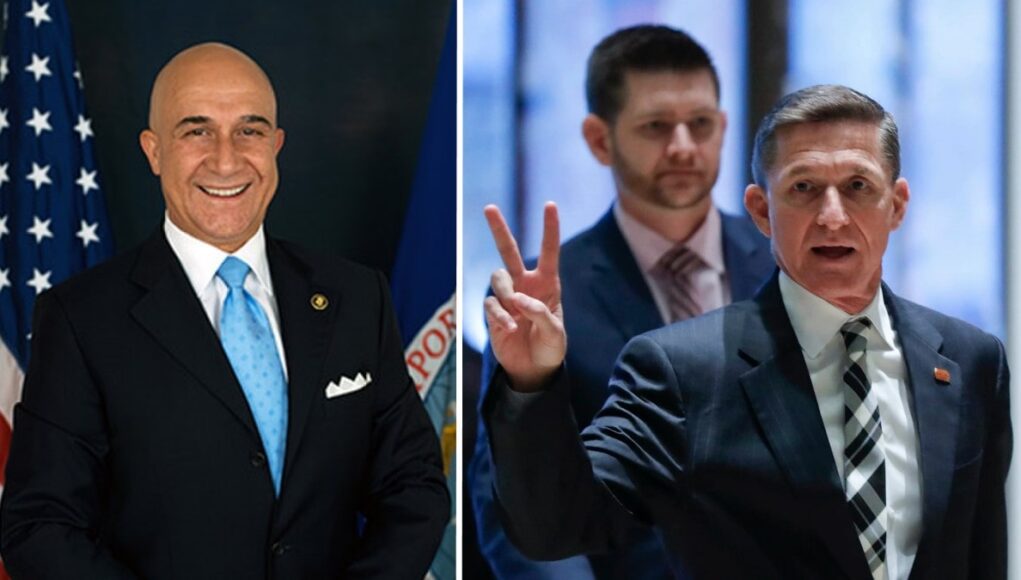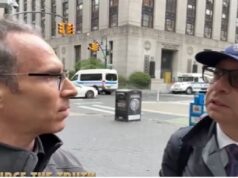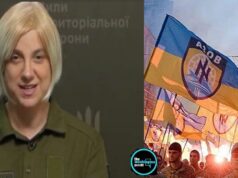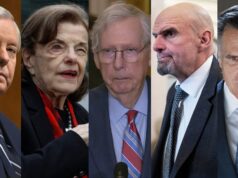As first reported by Josh Gerstein of Politico, former Flynn Intel Group (FIG) and business partner of Lt. Gen Michael T. Flynn (Ret.), Bijan Kian has once again been granted a new trial on alleged violations of the Foreign Agents Registration Act (FARA) originally brought by the Mueller Special Counsel Office (SCO). This is now the second time U.S. District Judge Anthony Trenga has granted Kian’s Motion for a New Trial after having his first ruling overturned on appeal by a three-judge panel of the 4th Circuit.
The case relates to private contract work FIG performed related to Turkey while Gen. Flynn was outside of government, between the time he retired from the U.S. Army after being dismissed as President Barack Obama’s Defense Intelligence Agency (DIA) Director and his appointment as National Security Advisor (NSA) by President Donald J. Trump.
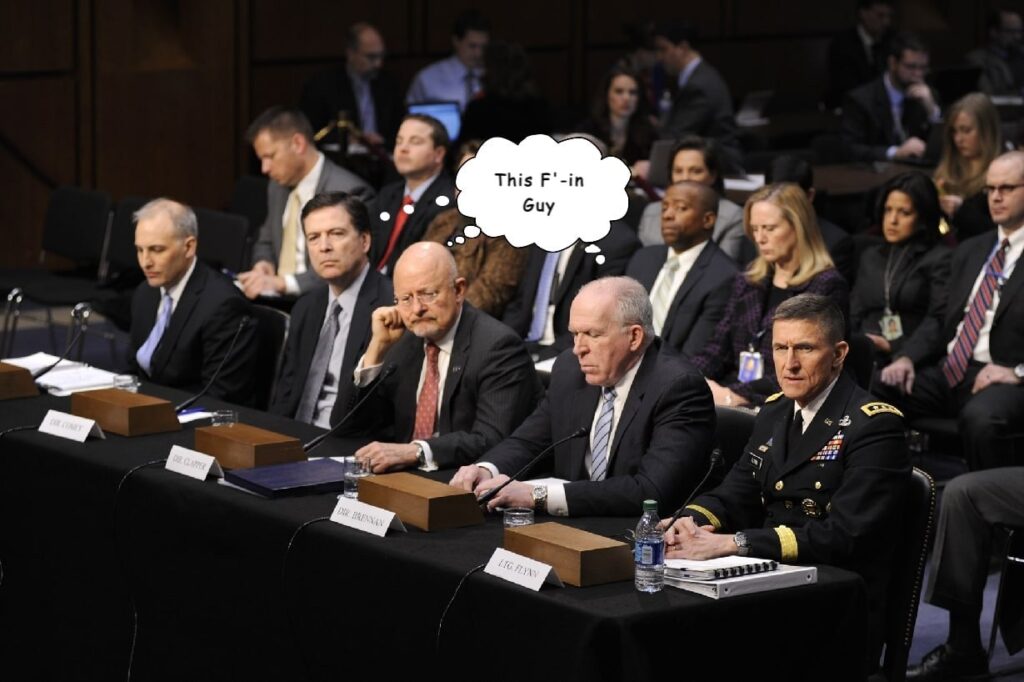
In an extraordinary ruling, Judge Trenga once again granted Bijan Kian (“Rafiekian” in court filings) a new trial stating,
“The Court finds and concludes that [Kian’s] convictions … were so against the great weight of the evidence that it would be unjust to convict him on either Count and a new trial is warranted in the interests of justice … ORDERED that Defendant [Kian’s] convictions … hereby are, VACATED, and his renewed motion for a new trial …. hereby is, GRANTED”
From U.S. District Judge Anthony Trenga’s Mar 2022 New Trial Order ruling in the trial of Bijan Kian
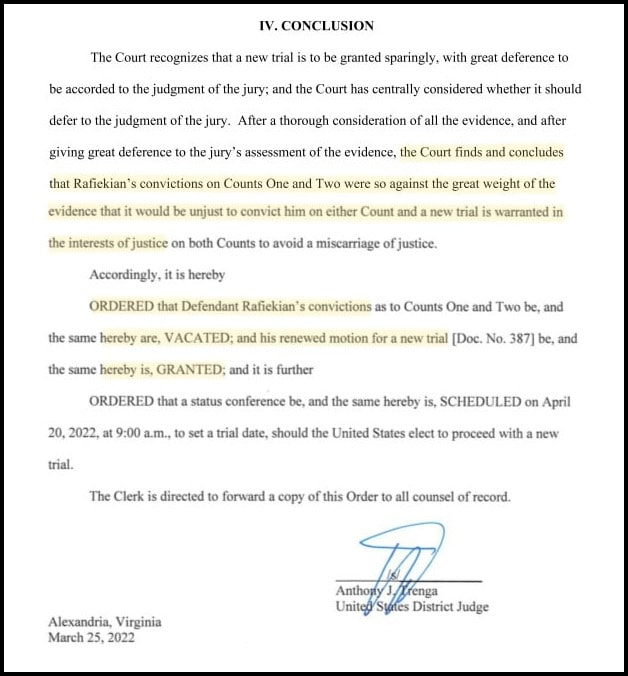
After the 4th Circuit decision in March 2021 however, and to the surprise of many, Judge Trenga did not move straight to sentencing and began hearing new motions in the trial that kicked off a year-long saga, culminating in last week’s ruling once again granting Kian a new trial. Most of the briefings filed in the case throughout 2021 concerned Defense Exhibit 66 or “DX66”. On the eve of the trial, the government gave Kian’s legal team a one-sentence summary of alleged classified intercepts between Gen. Flynn and former FIG client and Kian’s co-defendant, K. Ekim Alptekin which stated,
“The United States government is in possession of multiple independent pieces of information relating to the Turkish government’s efforts to influence United States policy on Turkey and Fethullah Gulen, including information relating to communications, interactions, and a relationship between Ekim Alptekin and Michael Flynn and Ekim Alptekin’s engagement of Michael Flynn because of Michael Flynn’s relationship with an ongoing presidential campaign without any reference to the defendant or FIG.”
From the transcript of a Jul 2020 motion hearing for access to classified information in the trial of Bijan Kian
Kian’s defense entered the summary into evidence believing the statement was exculpatory as it showed Kian was not a party to an alleged conspiracy to violate FARA. However, the government used the statement in its rebuttal in closing arguments, and after Kian’s defense could no longer respond, to implicate him by association.
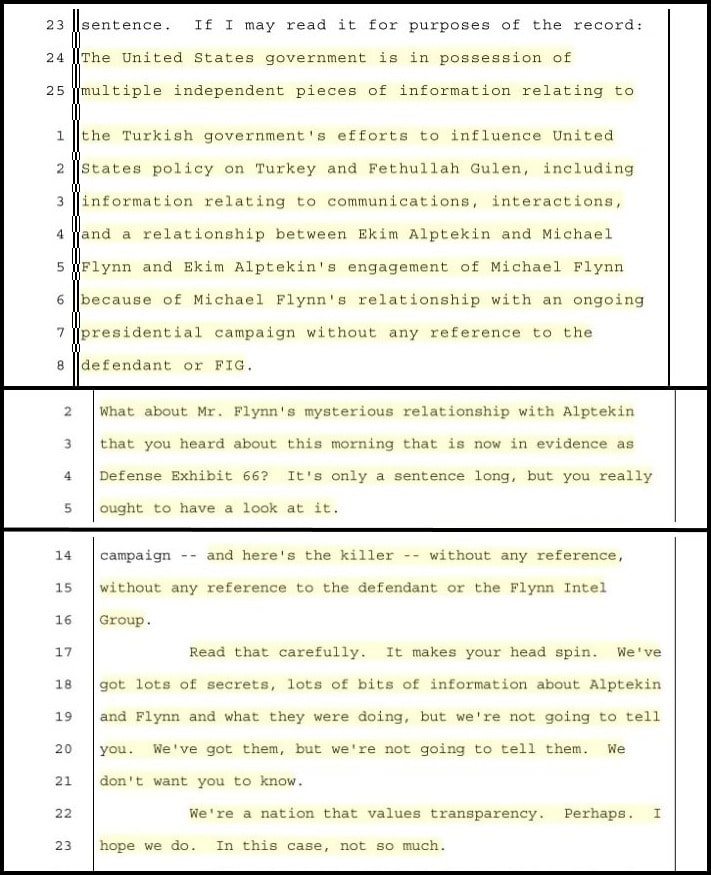
“What about Mr. Flynn’s mysterious relationship with Alptekin that you heard about this morning that is now in evidence as Defense Exhibit 66? It’s only a sentence long, but you really ought to have a look at it … and here’s the killer … without any reference to the defendant or the Flynn Intel Group.
From the transcript of the Jul 2020 closing argument in the trial of Bijan Kian
Read that carefully. It makes your head spin. We’ve got lots of secrets, lots of bits of information about Alptekin and Flynn and what they were doing, but we’re not going to tell you. We’ve got them, but we’re not going to tell them. We don’t want you to know. We’re a nation that values transparency. Perhaps. I hope we do. In this case, not so much.”
Ekim Alptekin discussed the alleged classified communications summarized in DX66, the impact of the disclosure had as Bijan’s first trial was set to begin, and speculated about the government’s motives for making the disclosure on the very eve of Kian’s trial in an interview he gave to Tracy Beanz on the Dark To Light podcast in October 2021.
Ekim Alptekin: They have no good reason to keep this classified. And I’m pretty certain that if this so-call “classified evidence” would prove their case, it would long be declassified already
Tracy Beanz: Yeah, they’d be traipsing that out all over. CNN would have it. [The Washington Post].
Ekim Alptekin: Exactly. They’re very good at leaking stuff. Why hasn’t this leaked?
Tracy Beanz: Because it doesn’t exist
Ekim Alptekin: Because there’s nothing there
Tracy Beanz: Exactly
Ekim Alptekin: It doesn’t exist
From Ekim Alptekin’s Oct 2021 interview on the Dark to Light Podcast with Tracy Beanz
Kian’s legal team (who already had the necessary security clearances) had filed a pretrial motion to examine the underlying intelligence to see if any of it would be exculpatory in his defense, but the government hid behind their usual “sources and methods” excuse and opposed the motion. Trenga put the issue to the side and stated he would revisit it if it became relevant at a later date.
In light of the 4th Circuit decision and use of the one-sentence summary by the government during closing arguments to suggest guilt by association, Kian’s defense team reminded the judge of his prior ruling and again filed a motion to examine the underlying intelligence. Trenga examined the evidence himself and unfortunately again denied the request by ruling there was nothing contained in it that could prove beneficial to Kian’s defense, but did address the DX66 issue in his most recent decision granting a new trial stating,
“[T]he Government’s argument pertaining to [DX66] in its closing summation … distracted the jury’s attention from the great weight of the evidence in favor of acquittal.”
From U.S. District Judge Anthony Trenga’s Mar 2022 New Trial Order ruling in the trial of Bijan Kian

It is certainly disappointing the underlying intelligence was not declassified or provided to the defense attorneys to prove if the government truly was bluffing, and just using the one-sentence summary to smear Gen. Flynn in media reports about the case to bolster the Mueller SCO narrative that Flynn had “sold out his country”. But if the Intel was in fact as damning as the government had claimed, then it almost certainly would have been beneficial to Kian’s defense, proving he was completely unaware of the alleged conspiracy. So it seems possible, if not likely, there really was “nothing there”.
The last court hearing in the case was late in the afternoon on December 15, 2021. Interestingly, the hearing took place after one of the initial hearings for Igor Danchenko for his indictments on Lying to Federal Investigators brought by the Durham Investigation over which Judge Trenga is also presiding. Hardly anyone, including media covering the FIG case, remained in the courtroom and the transcript was not made public for 90 days to allow for motions and redactions on classification grounds. Almost no one knew what had happened in the hearing. No motions were filed, and Trenga issued no rulings for over 3 months. The delay even led noted legal columnist Techno Fog to remark,

“I keep checking the Bijan case… and nothing. It’s getting ridiculous. Same with the Alfa Bank/Fusion DC case. Motions been pending for months.”
~ @Techno_Fog
The delay gave me and others some guarded optimism maybe Judge Trenga was using the time to find the legal basis needed avoid sentencing a man he believed to be innocent to prison despite the constraints placed on him by the 4th Circuit decision. As Alptekin and Beanz had discussed in their earlier interview in April 2021, Trenga had been exceedingly fair and impartial throughout the trial; a rare trait among DC and EDVA federal judges, especially considering the climate in and around Washington D.C. during the Russia Collusion and Mueller Investigation hysteria. It’s hard to overstate how far Trenga is sticking his neck out with last week’s ruling.
“Finally, somebody with some integrity, that judge”
~ Tracy Beanz
The transcript was finally made public on March 21st and read just like one would expect; a short hearing at the end of a long day with everyone involved trying to wrap up work and get home in the middle of the holidays. Trenga asked for clarification on a few points made in the legal briefs submitted ahead of the hearing. The only time he really seemed to press was when he questioned federal prosecutors about contradictions in their past and current arguments related to DX66. They had previously contended the summary was relevant to Kian when arguing to the jury to secure a conviction, but now immaterial in the context of granting him a new trial. It is hard to get a read of how the exchange actually went just from reading a transcript, but Trenga seemed unsatisfied with the government’s response to his query. By the end of the same week the transcript was released, Judge Trenga issued his decision, and he did not disappoint (unless of course, you are a corrupt DOJ prosecutor).
The 4th Circuit gave Trenga the slightest opening and it seems he did indeed use the time to take advantage of it. In the 51 page decision, Trenga explains the 4th Circuit found he erred and his explanation was “insufficient” to set aside the jury verdict and conditionally grant a new trial because he had simply pointed back to the grounds stated in his acquittal analysis to issue a separate ruling. However, the 4th Circuit did acknowledge the trial judge was in a better position to evaluate the witness testimony and evidence presented at trial as a whole having presided over the case in person, and they conceded a grant for a new trial could still be warranted if Trenga was able to provide “additional justifications” for his ruling. And he did just that.
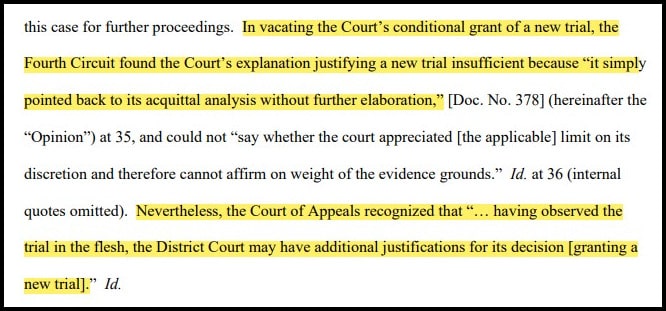
Judge Trenga uses the 51 pages to meticulously pick apart the government’s case. As mentioned before, Trenga was not satisfied at all with the government’s justification for referencing DX66 in closing arguments to the jury or their subsequent change in position. But it was not the main crux of his decision. In short, he laid out how the government had failed to prove their case on either count and had led the jury to incorrect conclusions using “weak inferences, many built upon one another” with “narrowly framed circumstantial evidence” all “without regard to a broader context” that “all points to [Kian’s] innocence”. And when the evidence is taken as a whole, “a new trial … is warranted in the interests of justice and to avoid a miscarriage of justice”.
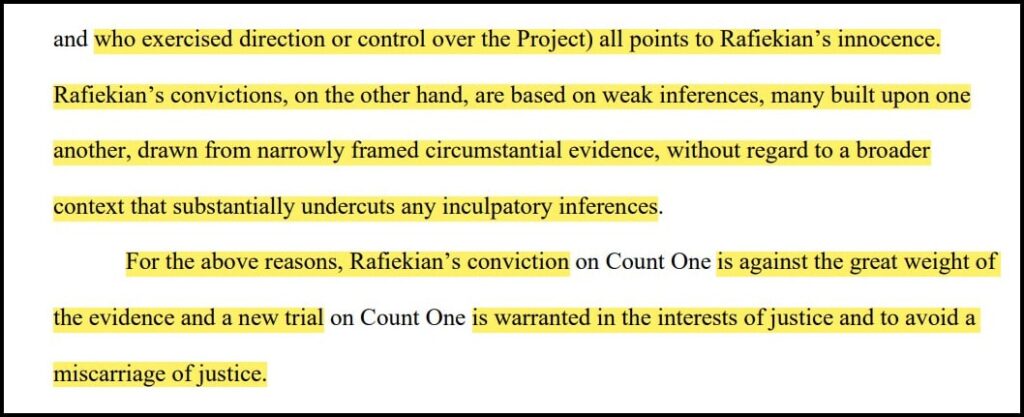
Central to the government’s case were two separate Flynn Intel Group engagements, Project Truth and Project Confidence.
Project Truth was the name given to a proposed lobbying effort by the Flynn Intel Group that drew some interest from Turkish cabinet-level ministers, but which the government of Turkey ultimately passed on.
Project Confidence was a lobbying effort for which Alptekin hired the Flynn Intel Group himself in August 2016 after the Turkish government passed on Project Truth. Alptekin has explained the difference between the two projects in several interviews. The earliest one, directed towards an American audience, was in May 2019 with Mike Doran on the Counterbalance podcast.
One part of the story that doesn’t get explained very well, even by “friendly” media, Alptekin and Kian were longtime business associates and had an existing, close friendship dating back to Kian’s time on the Board of Directors of the U.S. Exim Bank, a Senate confirmed position he was appointed to by both Presidents George W. Bush and Barack Obama. The Kian and Alptekin families had even once spent Christmas together. Here Alptekin describes his friendship with Kian before and outside the commercial contract with the Flynn Intel Group.
Alptekin had been very shaken by the 2016 Gülenist coup attempt in Turkey having personally lived through the chaos in Istanbul. He was also the chairman of the Turkey-U.S. Business Council (TAİK), and recognized the damage being done to the Turkish-American business relationship as long as the rebellious group remained protected inside the United States. So he felt very passionate about the subject and had an almost frantic, personal desire to expose the danger the group poses both to Turkey as well to the United States. His exuberance probably made him overly optimistic about the chances of convincing the Turkish government to engage the Flynn Intel Group for Project Truth.
Bijan Kian’s job was to sell contracts and generate business for the Flynn Intel Group. Alptekin, believing he had all but convinced the government of Turkey to hire FIG, gave personal assurances to his longtime friend the lucrative government contract was likely imminent. Based on those assurances, Kian began the planning stages and prep work for Project Truth. So when it became apparent the Turkish government had “dropped the ball” on moving forward with the project, Alptekin felt he had let his longtime friend down by missing out on the large government contract, and to some degree, shame knowing Bijan had likely been embarrassed in front of his FIG colleagues having already done a great deal of prep work for a project that never materialized. Alptekin agreed to privately fund a smaller project both to throw a bone to his buddy and at least give him some business. But also held out hope the smaller project would provide a “proof of concept” he could use to convince the Turkish government with “Confidence” (hence the name) that investing more in the United States on their own lobbying efforts would be worthwhile. Alptekin envisioned it could ultimately restore “Confidence” (hence the name again) between the Turkish and American business communities, and continued to push Turkish officials throughout this time to explore entering into their own contract with the Flynn Intel Group.
Had the Turkish government entered into Project Truth, FIG would have been required to submit a FARA filing with the DOJ disclosing their work on behalf of a foreign government, but since work on Project Confidence was being done on behalf of Alptekin, a private individual, and his Dutch company Inovo BV, FIG was only required by law to submit a Lobbying Disclosure Act (LDA) disclosure with the U.S. Congress as the Flynn Intel Group did in late September 2016.
Andrew Weissmann and the rest of the Mueller SCO ‘cabal’ were able to use the public’s misunderstanding of the differences between Project Truth and Project Confidence to piece together a “crime” using elements from different transactions as has been their modus operandi dating back to their investigations into Enron and Arthur Andersen as Sidney Powell explained in her book Licensed To Lie.
Likewise, the 4th Circuit had attempted to give some backing to the DOJ’s theory of the case stating, “a rational juror [could] conclude that Project Truth was synonymous with Project Confidence; that the Turkish government was, in fact, behind the project.” However, Judge Trenga didn’t let the Mueller people get away with it and called out the scheme for what it was; piecing together facts and events, distorting the timeline, and concocting a flimsy theory that Project Confidence was some kind of “cover story” to conceal the fact the government of Turkey was FIG’s real client when almost all evidence pointed to the contrary and the case should have never been brought in the first place.
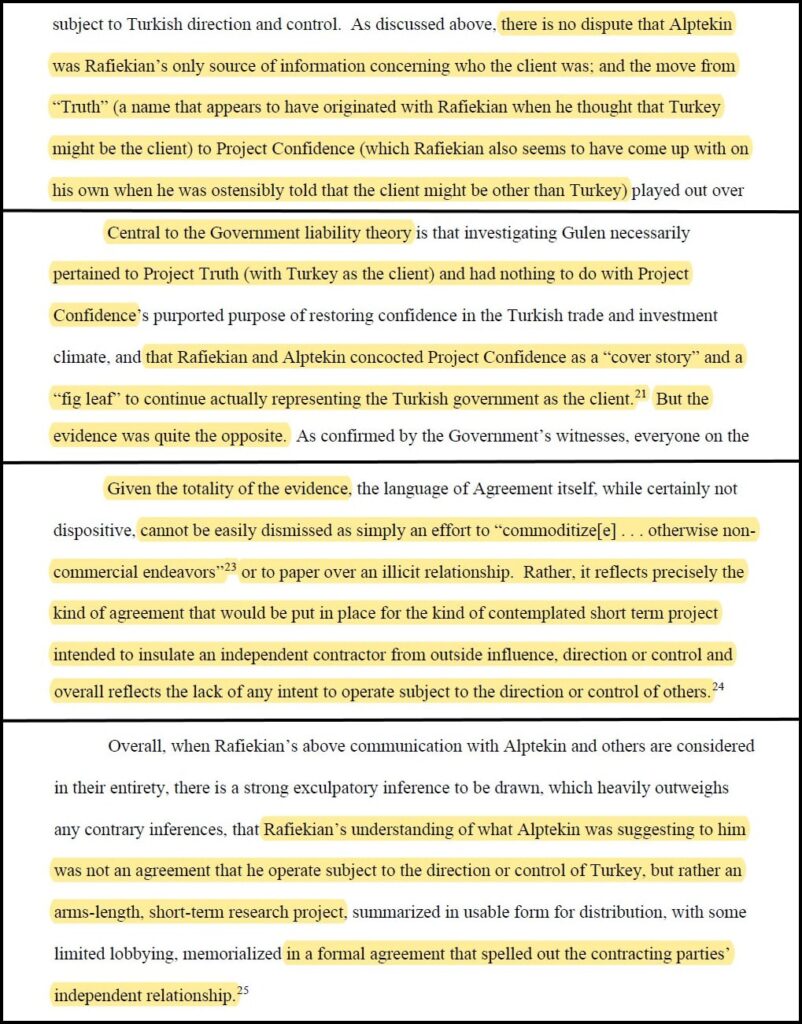
Judge Trenga even seemed to pick up on Alptekin’s overzealous efforts to sell the Turkish government on hiring the Flynn Intel Group that the Mueller team exploited to create the fictional narrative Gen. Flynn, Bijan Kian, FIG, and Alptekin were all secretly conspiring to work as illegal foreign agents of Turkey; a point he made by describing Alptekin as a “wannabe emissary”. Alptekin seemed to take the minor slight in good humor though, even making a self-deprecating joke with the reference a few days after Trenga’s ruling was issued.

The final really interesting part of Judge Trenga’s decision is where he seems to take shots at the government prosecutors for their ever-changing narrative about Gen. Flynn’s involvement in the case (he is listed as “Person A” in the original indictment of Kian and Alptekin). First, the government stated Flynn had not been involved in their theoretical conspiracy, then suddenly right before trial started, he was redesignated as a co-conspirator; plugging Gen. Flynn in or out whenever convenient to either smear the General or make the criminal case against Kian stick by painting Bijan as the ringleader.
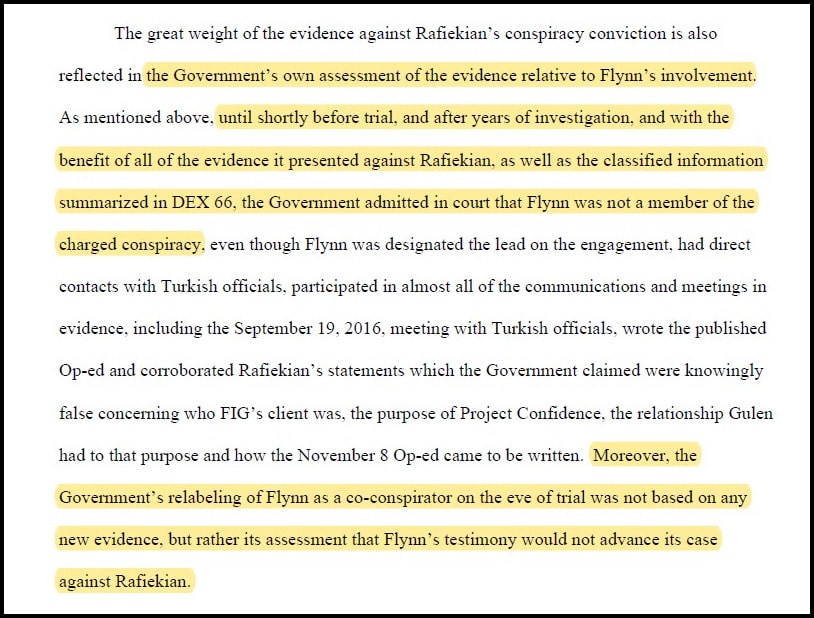
Judge Trenga reportedly blocked Mueller Investigation prosecutors from adding Gen. Flynn as a co-defendant in the case shortly before it was set to begin. This might have been part of a scheme that included Joe Biden sending his brother, Jim Biden to meet with Alptekin in Turkey four days before his announcement to run for the presidency and several months before Bijan’s trial was set to begin. As Alptekin detailed in his October 2021 interview with Tracy Beanz, he was offered representation by former Attorney General and Obama’s self-described “wingman” Eric Holder with a implied, special Biden quid pro quo that Alptekin could roll on Gen. Flynn and make his own criminal charges go away. All this would have been needed as Gen. Flynn’s other case in D.C. was beginning to fall apart after Sidney Powell took over as defense counsel. It appears it might have all been part of a desperate effort to salvage a criminal conviction against Gen. Flynn, and Judge Trenga was cognizant enough to see what was happening and put a stop to it.
Most who have followed the Flynn saga know about the drama that played out in the courtroom of Judge Emmet Sullivan in the DC District on charges of lying to the FBI, but few are aware of the FARA case in the Eastern District of Virginia just down the road. Make no mistake however, the FARA case in the EDVA was the primary means used to target Gen. Flynn, and used to blackmail him into a plea agreement by threatening to indict his son Mike Flynn Jr. in the same case. The Mueller SCO only “Jen Psaki-ed back” to the Logan Act related charges in DC after finding it was unlikely to secure a conviction in the EDVA after almost a year-long investigation.
The Biden DOJ now is faced with a dilemma on how to proceed in the trial of Bijan Kian. They really have 3 choices:
1. Simply Refuse to Retry Bijan Kian and Drop The Case
Common sense would say to cut your losses and not risk another trial that could prove very embarrassing for the DOJ and the Biden administration. But common sense doesn’t seem to be all that common in the DOJ run by AG Merrick Garland. In addition to revelations about the Biden’s direct interference in the case and Eric Holder’s possible involvement, other revelations have come to light that former DHS official Miles “Anonymous” Taylor and former FBI Deputy Asst. Director Brian McCauley (the key witness in Bijan’s first trial) may have in fact both been spies sent to infiltrate the Flynn Intel Group as part of the Crossfire Razor Investigation working on behalf of the FBI (or possibly the CIA).
2. Retry Bijan Kian and Risk Further Exposing Corruption by The FBI, Mueller Investigation, and Direct Interference in The Case by Biden and His Family
Bijan Kian’s original trial took place in July 2019, long before the Gen. Flynn trial in D.C. turned into a complete fiasco throughout 2020. Kian’s defense would likely be much more robust given all the information that’s come out in the over 2 years since. A second trial with a clean slate of evidence and witness testimony would be risky to say the least. But DOJ seems very reluctant to drop the case having already gotten a dismissal overturned on appeal once before. This is one of the few “successes” that has come out of the Mueller Investigation witch hunt and securing a conviction allows critics to smear Gen. Flynn by association by way of his direct connections to Kian and the Flynn Intel Group.
3. Once Again Appeal Judge Trenga’s Ruling to The 4th Circuit
The DOJ has already managed to get 5 separate rulings by Judge Trenga overturned on appeal. It stands to reason they would want to try the same course gain. DOJ may even attempt to have Trenga removed from the case via a writ of mandamus claiming he failed to follow the 4th Circuit’s instructions from the last appellate decision. This seems to be the most likely next step for the DOJ because it could potentially reinstate the verdicts without the need to retry the case, but DOJ might not luck out this time around and draw two Obama appointed judges on the three judge panel.
Unless there is an unexpected filing in the case, we should find out at the answer on Wednesday, April 20th.
Set Hearing as to Bijan Rafiekian: Status Conference set for 4/20/2022 at 09:00 AM in Alexandria Courtroom 701 before District Judge Anthony J Trenga. (jlan) (Entered: 03/25/2022)
From the EDVA court docket of U.S. vs Bijan Rafiekian
The Washington Pundit | Speak Truth To Power
Follow me on Truth Social @AdamCarter



